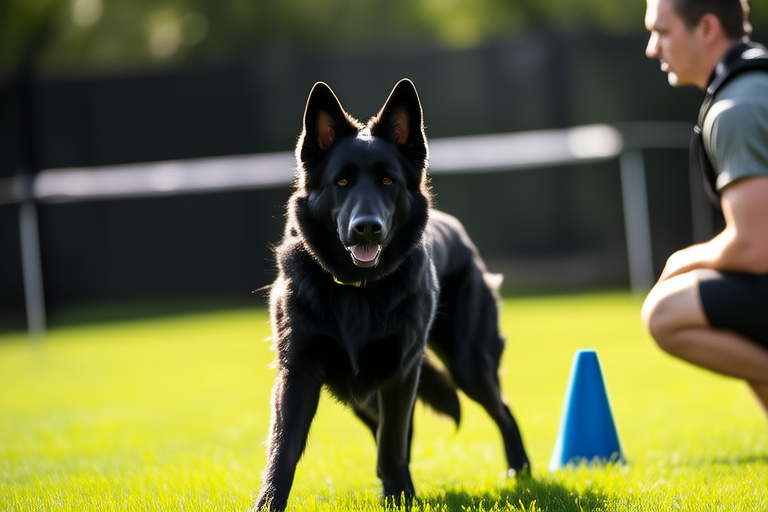Ultimate Guide to Training Your Loyal Companion: The German Shepherd
Welcome to the Ultimate Guide to Training Your Loyal Companion: The German Shepherd. This comprehensive guide will cover essential training techniques, socialization tips, common behavioral issues, and solutions tailored for German Shepherds. Whether you’re a first-time owner or an experienced handler, this guide aims to provide you with valuable insights into establishing routines, using positive reinforcement, and understanding your German Shepherd’s unique intelligence and energy levels. Let’s dive into the world of training your German Shepherd.
Understanding Your German Shepherd
German Shepherds are one of the most popular breeds worldwide due to their loyalty, intelligence, and versatility. They are often used as working dogs, police dogs, and service animals. Their high energy levels and strong work ethic make them excellent candidates for various tasks, but these traits also require consistent training and exercise. Understanding your German Shepherd’s temperament, energy levels, and intelligence is crucial for effective training.
Establishing Routines
Establishing a routine is key to successful training. Dogs thrive on consistency, and German Shepherds are no exception. Start by setting regular feeding times, creating a daily walk schedule, and designating specific areas for sleeping and playing. Consistency in these areas helps your dog understand what is expected of them and reduces confusion. Additionally, sticking to a routine can help prevent behavioral issues like anxiety or destructive chewing.
Positive Reinforcement Training
Positive reinforcement is a proven method for training German Shepherds. This approach involves rewarding good behavior with treats, praise, or playtime. By reinforcing desired behaviors, you encourage your dog to repeat them. Positive reinforcement builds a strong bond between you and your dog and makes training sessions enjoyable for both of you. Always ensure that the rewards are appropriate for your dog’s size and dietary needs.
Early Training: Basics and Commands
Early training is essential for laying the foundation for future success. Start by teaching basic commands such as ‘sit’, ‘stay’, ‘come’, and ‘down’. These commands are fundamental and can be easily taught using positive reinforcement. Break down each command into small, manageable steps, and reward your dog each time they successfully complete the task. For example, when teaching ‘sit’, hold a treat above your dog’s head, and as they look up, their bottom will naturally lower. As soon as they sit, give them the treat and praise them.
Obedience Commands
Once your German Shepherd has mastered the basics, it’s time to move on to more advanced obedience commands. These commands include ‘heel’, ‘leave it’, and ‘wait’. Teaching ‘heel’ ensures your dog walks beside you without pulling on the leash. ‘Leave it’ teaches your dog to resist distractions and focus on you. ‘Wait’ helps your dog remain still until given permission to proceed. Consistent practice and patience are key to mastering these commands.
Advanced Training Methods
For experienced handlers looking to challenge their German Shepherd, advanced training methods can be both stimulating and rewarding. Consider agility training, scent detection, or even search and rescue work. These activities tap into your dog’s natural instincts and provide mental and physical stimulation. Advanced training not only strengthens the bond between you and your dog but also keeps them engaged and mentally sharp.
Socialization Tips
Socializing your German Shepherd is vital for their emotional well-being and overall behavior. Expose your dog to different people, animals, environments, and situations from a young age. This exposure helps them become confident and adaptable. Puppy classes are an excellent way to introduce your dog to other dogs and people in a controlled environment. Regular visits to parks, pet stores, and dog-friendly cafes can also enhance socialization. Remember, socialization is an ongoing process that continues throughout your dog’s life.
Common Behavioral Issues and Solutions
Despite their intelligence and loyalty, German Shepherds can sometimes exhibit behavioral issues. Common problems include excessive barking, chewing, and separation anxiety. Addressing these issues requires patience, consistency, and positive reinforcement. For excessive barking, identify the trigger and redirect your dog’s attention to a toy or activity. Chewing can be managed by providing appropriate chew toys and redirecting unwanted chewing. Separation anxiety can be alleviated through gradual desensitization and ensuring your dog has plenty of mental and physical stimulation before leaving them alone.
Understanding Their Unique Intelligence and Energy Levels
German Shepherds are highly intelligent and energetic dogs. Their intelligence means they learn quickly and can pick up complex commands with ease. However, their energy levels require regular exercise and mental stimulation to prevent boredom and potential behavioral issues. Daily walks, playtime, and interactive toys are essential for keeping your German Shepherd happy and healthy. Mental challenges, such as puzzle toys or training games, can also help channel their intelligence productively.
Conclusion
Training your German Shepherd is a rewarding journey that strengthens the bond between you and your loyal companion. By establishing routines, using positive reinforcement, and addressing common behavioral issues, you can ensure your German Shepherd becomes a well-behaved and happy member of your family. Remember, every dog is unique, so tailor your training approach to suit your individual dog’s needs. With patience, consistency, and love, you can train your German Shepherd to be the perfect partner and friend.
